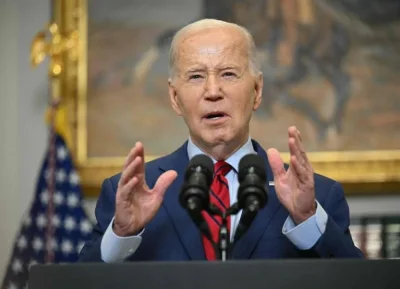The Secretary-General of the United Nations Antonio Guterres called on wealthy countries around the world to support poor nations and help them overcome obstacles that stand in the way of their economic development.
In a speech before the Fifth United Nations Conference on the Least Developed Countries (LDC5), which will take place in Doha from March 5-9, Guterres said that wealthy nations should provide $500bn annually to help those countries "trapped in vicious cycles" that block their efforts to boost economies and improve health and education.
Guterres said that LDCs were trapped by an escalating wave of crises, debt, climate chaos, and deep global injustice. He added, "The global financial system was designed by wealthy countries, largely to their benefit."
He pointed out, "Most developed countries are falling short of their promise to provide 0.15-0.20 percent of their Gross National Income to Least-Developed Countries."
The UN Secretary-General addressed poor countries by saying, "Deprived of liquidity, you are locked out of capital markets by predatory interest rates."
Guterres stressed, "Human development is impossible when education, health care and social protection systems are struggling - or non-existent."
"A thriving business community and the creation of decent jobs cannot happen if economies are stuck in first gear - exporting raw materials without opportunities for structural transformation to rapidly move up the value chain."
"Combatting climate catastrophe that you did nothing to cause is impossible when the cost of capital is sky-high and the financial support you receive to mitigate and adapt to the destruction is a drop in the bucket," he added.
Guterres explained, "In the midst of these injustices, the United Nations is working with you to develop smooth transition strategies, based on tailored support for the graduation process."
"That's why the Doha Programme of Action includes an online university to provide your countries with access to science, expertise and technology to develop more innovative and diverse economies and workforces."
He added, At this time of widespread food insecurity, the creation of a food stockholding system for Least-Developed Countries will be another tangible outcome of this Summit to combat hunger and skyrocketing food prices.
"The Doha Programme of Action also includes the establishment of an international investment support centre to help least-developed and graduated countries attract foreign investment."
Also, it focuses on a resilience-building mechanism, which is to increase the capacity of LDCs to adapt to climate change through adaptation, early warning system improvement, and multi-stakeholder resilience-building measures, he added.
He added that these measures would support the ability of individuals, communities and systems to withstand and recover from adverse shocks, build long-term resilience, and protect hard-won development gains.
The leaders of the countries participating in LDC5 are expected to agree on plans to implement the Doha Programme of Action for the LDCs, a ten-year commitment to renew and strengthen partnerships between the LDCs and developed countries, as well as the private sector and civil society. There will also be several new partnerships and concrete commitments to deliver on the promise of the Doha Programme of Action, especially in light of the sharply declining population of LDCs and the growing inequality of living standards.



